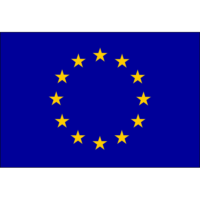European stock markets have demonstrated a robust recovery, buoyed by optimism surrounding potential tariff negotiations between the United States and its trading partners. This resurgence reflects investor confidence in the possibility of alleviating recent trade tensions that have influenced global markets.
Following a period of volatility triggered by the U.S. administration’s announcement of sweeping tariffs ranging from 10% to 50% on imports from over 180 countries, European equities faced significant pressure. However, recent developments suggest a shift in sentiment. U.S. President Donald Trump indicated productive discussions with international counterparts, including a “great call” with South Korea’s acting president and expressed China’s eagerness to reach a deal. Additionally, Japanese Prime Minister Shigeru Ishiba signaled intentions to dispatch a delegation for tariff negotiations, emphasizing the establishment of “tough but fair parameters” and encouraging increased purchases of American goods.
These diplomatic overtures have invigorated European markets. The pan-European Stoxx 600 index climbed by 2.72%, closing at 486.91. Germany’s DAX 40 index advanced 2.48% to 20,280.26, the UK’s FTSE 100 rose 2.71% to 7,910.53, and France’s CAC 40 increased by 2.5% to 7,100.42. Sector-specific gains were notable, with insurance stocks rising by 4%, financial services up by 1.6%, and the travel sector appreciating by 3.7%.
The technology and oil sectors played pivotal roles in this upswing. European tech stocks surged by 2.4%, mirroring strong performances in Asian markets, notably Tokyo’s Nikkei 225, which experienced a 6% jump. The oil sector also benefited from a modest uptick in Brent crude futures, reaching $64.39 per barrel. These sectoral gains underscore a broader investor optimism, potentially signaling a stabilization of markets previously unsettled by tariff announcements.
Market analysts attribute this positive trajectory to the prospect of negotiated settlements that could mitigate the impact of the imposed tariffs. The European Commission’s contemplation of counter-tariffs and the European Central Bank’s openness to adjusting interest rates by 0.25% further contribute to the prevailing sentiment that collaborative solutions may be on the horizon.
While these developments have fostered a sense of cautious optimism, market participants remain vigilant. The Euro Stoxx 50 volatility index, despite a 12.7% decline to 38.62, continues to reflect underlying uncertainties. Investors are advised to monitor ongoing negotiations closely, as the outcomes will likely have significant implications for international trade dynamics and market stability.
The recent rally in European stocks is a testament to the market’s responsiveness to geopolitical developments and the potential for diplomatic engagements to influence economic trajectories positively. As discussions progress, stakeholders will be keenly observing the balance between protectionist measures and collaborative trade agreements that could shape the future of global commerce.
Fidelity European Trust PLC (LON:FEV) aims to be the cornerstone long-term investment of choice for those seeking European exposure across market cycles.






































